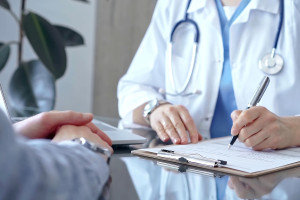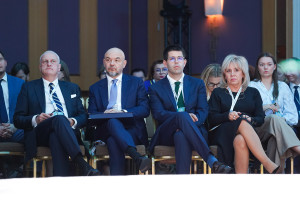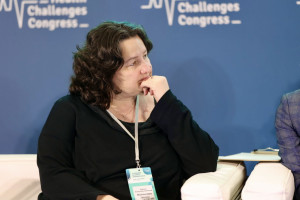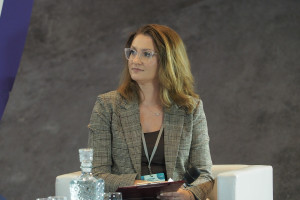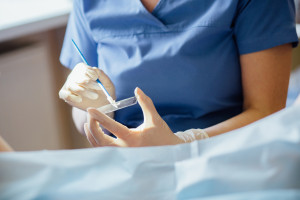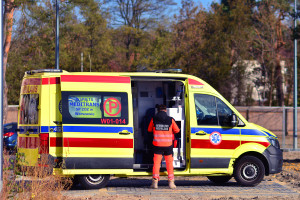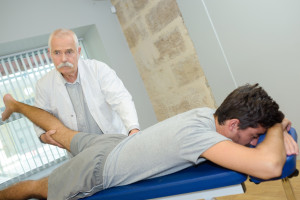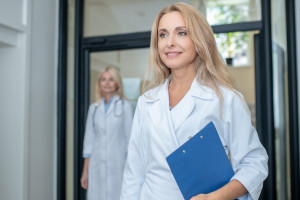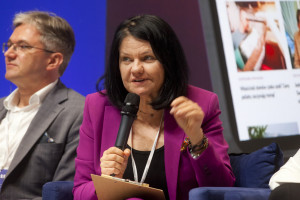Today, doctors are no longer leaving lectures on biological drugs. "The interest is visible"

- Polish patients have limited access to biological therapies. They are reimbursed under drug programs that are dedicated to the most expensive therapies.
- Meanwhile, we are talking about drugs that have been on the market for a dozen or so years and are cheaper equivalents of original drugs.
- The Ministry of Health proposes transferring already generic drugs from drug programs to outpatient clinics
- The solution included in the draft amendment to the Reimbursement Act assumes the introduction of an intermediate category between the pharmacy category and drugs available in the drug program. In the case of oncological drugs, this is chemotherapy
- Another issue is to encourage physicians in a given field who have not yet had any experience with biologics to join the process.
- - A few years ago, AOS doctors would leave lectures when a presentation on biological therapies began, assuming that it did not apply to them. But for a year or two, we have been observing a change - says Prof. Aleksandra Lesiak, provincial consultant for dermatology and venereology
In Poland, access to biological therapies is still several times lower than in other EU countries. Although the number of patients treated in drug programs in Poland is growing slightly from year to year, the percentage of access to this treatment is very low.
Analysis of the National Health Fund data for 2020 indicates that access to innovative therapies in Poland was available to approximately 1.8% of patients with RA, approximately 14% of patients with JIA, approximately 2.5% of patients with AS, approximately 1.8% of patients with PsA, approximately 0.2% of patients with nrSpA, approximately 0.2% of patients with psoriasis (1% of patients with moderate to severe psoriasis), approximately 12% of the population of patients with CD, and approximately 3.3% of patients with UC.
The situation is now slightly better, but still far from optimal. This shows the area of psoriasis treatment.
- Psoriasis affects about 3 percent of the population. About 20 percent of these patients have a severe form, i.e. less than 0.7 percent. In absolute numbers, this gives a population of about 150 thousand people. Meanwhile, according to data from mid-2024, about 5.5 thousand patients are treated biologically in the B.47 program. The scale of the problem is still huge - says Prof. Aleksandra Lesiak, provincial consultant for dermatology and venereology, coordinator of the pediatric department of the Pediatric Dermatology and Oncology Clinic of the Medical University of Lodz.
The B.47 psoriasis treatment program itself has evolved over many years. In subsequent years, new molecules have been introduced into the treatment, and the provisions on the severity of the disease have been abolished, and today they are in line with European guidelines.
- We cannot therefore say that patients in Poland do not have access to biological treatment. But it is a guaranteed, limited benefit. Those implementing the program are overperforming, putting their facilities in debt due to delays in payments from the National Health Fund. Patients wait in lines, new ones are not included in the therapy - assesses Prof. Lesiak.
4th category of accessibilityIn order to meet the expectations of the clinicians’ community, the Ministry of Health proposes transferring already generic drugs from drug programmes to outpatient clinics.
The solution included in the draft amendment to the Reimbursement Act assumes the introduction of an intermediate category between the pharmacy category and drugs available in the drug programme, which in the case of oncological drugs is chemotherapy.
This concerns the fourth category of reimbursement availability, for drugs with non-oncological indications, along with the possibility of transferring them from the drug program for use in Specialist Outpatient Care.
- When creating the reimbursement act in 2011, the legislator created three categories of availability of oncological drugs, but forgot about non-oncological drugs. Meanwhile, we know very well that there are many products that have already been generated, are cheaper, could exist in outpatient specialist care, in a different therapeutic indication regime and this is a path dedicated to such products - said Mateusz Oczkowski, deputy director of the Department of Drug Policy and Pharmacy of the Ministry of Health.
The fourth category of availability will be divided into two paths. One will consist in the fact that the Ministry of Health will be able to make changes to the category of availability for products that have already been generated, as it does today on an ongoing basis with oncological therapies. The second path will allow the company to apply for reimbursement under AOS from the very beginning.
- The entity will be able to submit such an application, regardless of the price threshold. However, it must approach this honestly and offer a price adjusted to the population. At the moment, we see a certain "acrobatics" of companies. First, there is a certain limitation in the drug program, then every two years the company applies for an extension, arguing that the criteria are inconsistent with the guidelines, but does not reduce the price to the new population, which is many times larger - explained Oczkowski.
- That is why this path will be combined with mandatory pre-consultations, before submitting a reimbursement application. The responsible entity will be obliged to do so, it will not be able to submit an application for a population other than the one agreed with the consultant, the National Health Fund and AOTMiT - explained the director.
The Ministry of Health hopes that this will increase the potential of generic and biosimilar medicines, reduce the administrative burden on hospitals, and patients will have easier access to these medicines.
The doctors' interest is visibleAll the more so because we are talking about therapies that have been on the market for a dozen or so years, and many of them are cheaper equivalents of original drugs, which has allowed for reducing the costs of therapy.
There is still the issue of organizing the system in terms of transferring patients from hospitals to AOS and distributing medicines. At the moment, we do not know the details of the solution.
Prof. Aleksandra Lesiak points out that if this treatment took place only in outpatient clinics at facilities that have so far conducted drug programs, it would not change much in terms of improving accessibility: - The solution is to introduce a procedure that allows for the settlement of services provided to patients by specialists who have a contract with the National Health Fund.
Another issue is to encourage physicians in a given field who have not previously had any experience with biologics to be willing to join the process.
- Today, biological treatment is a standard therapy and a safe therapeutic option - convinces the provincial consultant: - We have a known safety profile of the therapy, we know how to set doses, how to monitor patients. Today, we even treat children with the old methotrexate, which has many side effects and is less safe than biological treatment. I think that doctors who already treat with classic immunosuppressive drugs today will be happy to join. They know that they would have an additional tool that would also allow unblocking the system in hospitals.
Specialists who are already experienced in biological therapies, such as Professor Lesiak, who has been dealing with them since they first appeared in Poland, conduct workshops and training courses dedicated to biological therapy: - We see an increasing interest. A few years ago, AOS doctors would leave lectures when a presentation on biological therapies began, thinking that it did not apply to them. But for a year or two, we have been observing a change. Doctors have started to warm up to this therapy and have understood that thanks to it they can now treat patients more effectively.
Systemic change also means changing the way of thinking of "decision makers"Another field where specialists would like to see wider access to biological therapies is rheumatology.
- Interdisciplinary cooperation is an absolutely necessary condition for better use of modern therapies, including biological treatment. Better, i.e. more effective and safer for the patient, earlier, i.e. after effective, faster diagnostics and after taking into account risk factors. Modern treatment should be more widely available also for social and economic reasons, patients who are effectively treated are full-fledged citizens, studying and working, enjoying a high quality of life and not burdened with the disease, pensioners and invalids - comments prof. Zbigniew Żuber, president of the Polish Rheumatology Society.
He believes that a systemic change is necessary to make innovative, biological treatment more widely available: - This is an undeniable fact. However, a fundamental change will occur when we change the algorithm of treatment. We should try to use the best, modern therapies as early as possible, and not as a final solution after the failure of standard, older methods of treatment. This is a goal we should strive for together. Systemic change also means changing the way of thinking of "decision makers", that modern, innovative therapies are not a cost, but an excellent investment in the health of our society.
Copyrighted material - reprint rules are specified in the regulations .
Due to election silence, adding comments has been temporarily blocked.
rynekzdrowia

